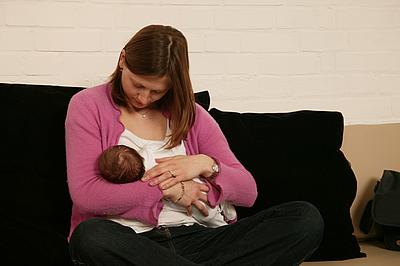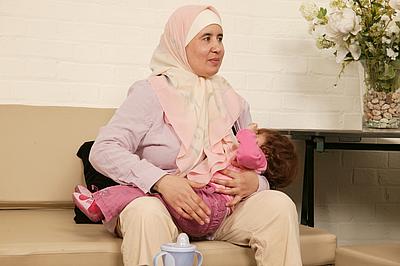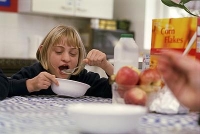Infant Feeding Part 1: Breastfeeding course


This session aims to provide you with the necessary information to help you enable women to initiate and continue breastfeeding for as long they choose to.
Learning Objectives
By the end of this session you will be able to:
- List the main health outcomes related to breastfeeding/breastmilk feeding vs. formula feeding for mothers and infants
- Outline current recommendations for infant feeding, including vitamin supplementation
- Explain the physiology of breastfeeding and how to support mothers in establishing breastfeeding
This session will give you the information you need to enable women to initiate and continue breastfeeding for as long they choose to.
Mary qualified as a nurse in 1977 (University of Edinburgh), and as a midwife (Edinburgh) in 1978. She was awarded a PhD in 1982, having spent several years with the MRC Reproductive Biology Unit, conducting clinical research in breastfeeding.
Mary worked as a midwife in Oxford and spent several years teaching in Alberta, Canada before taking up post as Director of the Midwifery Research Initiative at the National Perinatal Epidemiology Unit in Oxford (1988).
She was appointed as Professor of Midwifery Studies in the University of Leeds (1994), before taking up her current post as Professor of Mother and Infant Health in the University of York (2004).
She established and currently directs the multidisciplinary Mother and Infant Research Unit, where she leads a programme of work on maternal and infant nutrition, including research and evidence-based policy and practice.
Mary has conducted research and systematic reviews on infant feeding for NICE, the NIHR Health Technology Assessment programme, the Cochrane Collaboration, and the Department of Health.
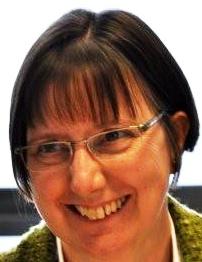
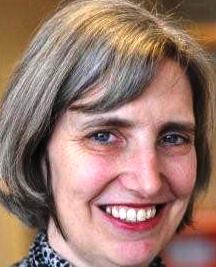
Following qualification as a midwife in Bristol in 1981, Alison experienced all aspects of clinical midwifery working in Bristol and Middlesbrough in the UK.
She spent three years working as a volunteer in Malawi, Central Africa, in the role of midwife-in-charge and midwifery tutor at a small rural mission hospital. Alison qualified as a midwife teacher at the University of Nottingham and was a midwifery lecturer at the University of Teesside until 2006.
Alison gained an MA in Applied Educational Studies at the University of York in 1993. In 2005 she was seconded to the Mother and Infant Research Unit at the University of York. In 2006, she was awarded a National Institute of Health Research Doctoral Fellowhship. Her doctoral research explored the breastfeeding experiences and support needs of women of Bangladeshi origin living in the UK.
Alison is currently employed as a research fellow at the Mother and Infant Research Unit.
- Introduction to Female Genital Mutilation course
- Posted By eIntegrity Healthcare e-Learning
- Posted Date: 2025-01-03
- Location:Online
- This session aims to give a brief overview of female genital mutilation (FGM). Learning Objective...
- Identifying and Supporting Victims of Modern Slave...
- Posted By eIntegrity Healthcare e-Learning
- Posted Date: 2025-01-03
- Location:Online
- This session will help frontline healthcare staff to identify victims of modern slavery and take app...
- Contraceptive Needs of Women Aged Over 40 course
- Posted By eIntegrity Healthcare e-Learning
- Posted Date: 2025-01-03
- Location:Online
- This session will explore the different contraceptive needs for individuals over 40, and which metho...
- Contraceptive Needs of Women with a Raised BMI cou...
- Posted By eIntegrity Healthcare e-Learning
- Posted Date: 2025-01-03
- Location:Online
- This session considers the safety and effectiveness of contraception in individuals with a raised BM...
- Contraceptive Needs of Women Following Pregnancy c...
- Posted By eIntegrity Healthcare e-Learning
- Posted Date: 2025-01-03
- Location:Online
- This session will review the importance of contraception after childbirth and its role in preventing...


